In Buddhist psychology, there are two parts to consciousness, the mind consciousness and the store consciousness. Mind consciousness is our active awareness for everyday living while store consciousness is often referred to as the “unconscious mind” where our past experiences are stored. In some situations, we go through life without engaging our mind consciousness. For example, when we drive without actively thinking, we are using our store consciousness.
How to Heal Your Childhood Wounds When You Can’t Turn Back the Clock
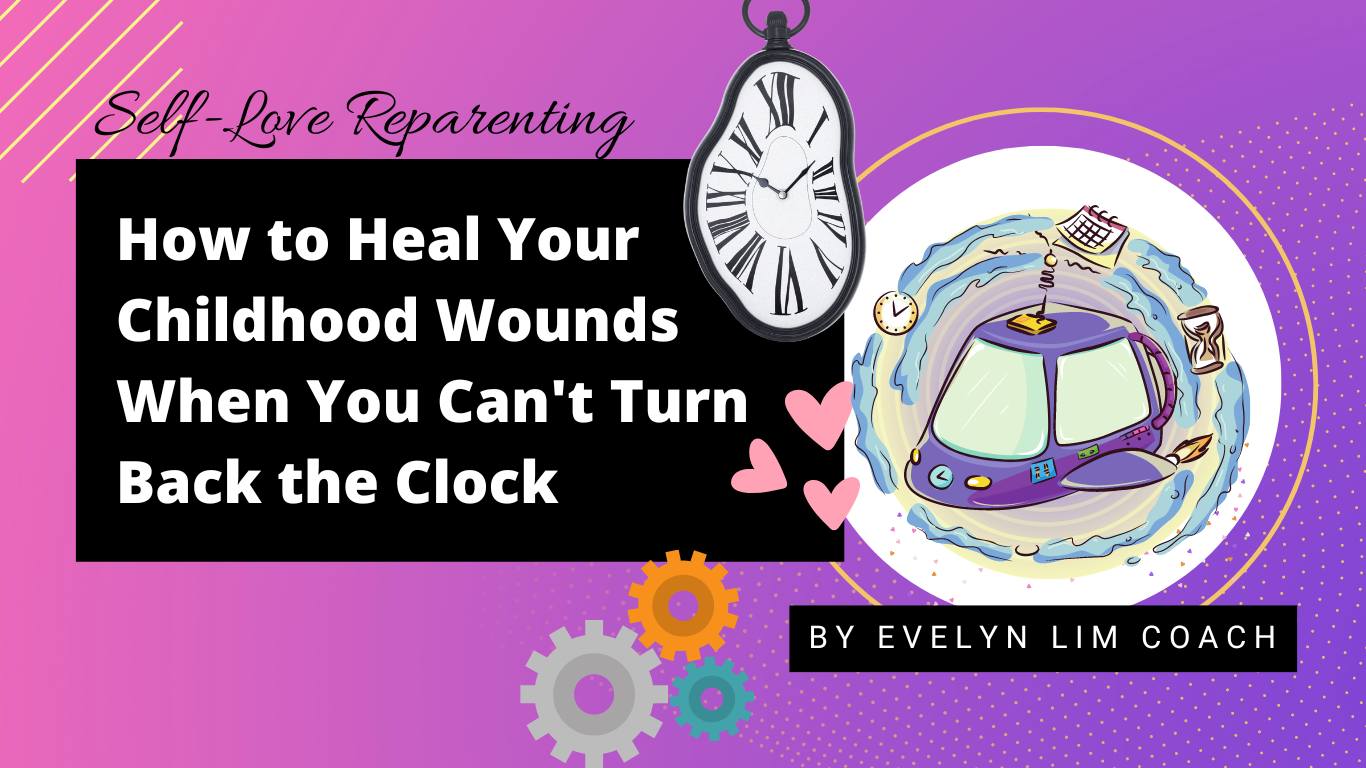
Some of us may be resistant to the idea of having to heal childhood wounds. That is because we don’t like having to revisit the past in our memory. We fear that we would relive the pain and that we would traumatise ourselves all over again.
Even more so, we wish that the past did not happen. For sure, if not for the past, we would have suffered less all these years and we wouldn’t have felt so lost, alone and confused. More importantly, we wouldn’t be unconsciously having an inner child that is bent on sabotaging our present.
Perhaps, just like how movies portray, we dearly wish that there can be a time machine that can take us back. We would like to have the power to change things right from the start, instead of having to do repair or healing work. If we can change history, a time machine would certainly help.
How Reparenting Helps to Address Your Insecure Attachment Style
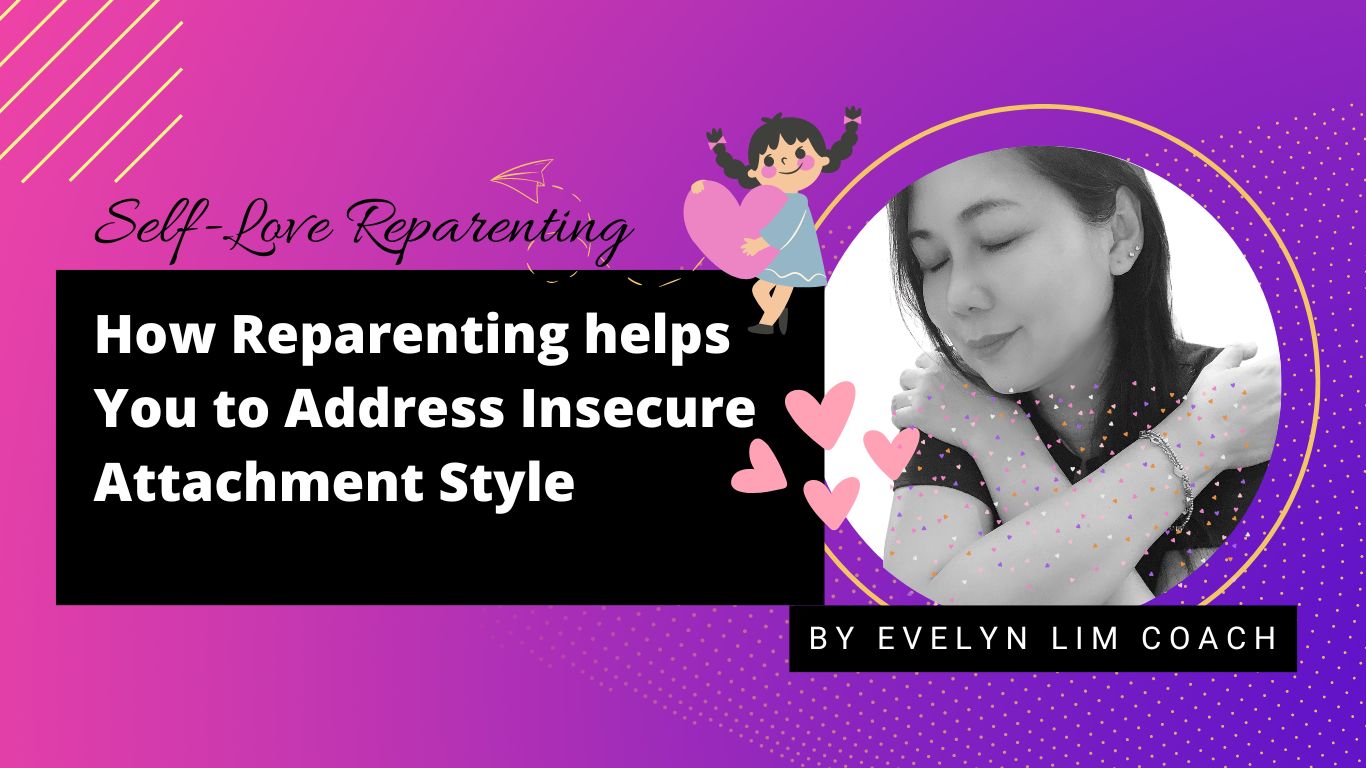
If you have an insecure attachment style, you can potentially benefit from doing some reparenting work. Insecure attachment affects those in their ability to form healthy relationships, make decisions and/or to cope emotionally. On the other hand, reparenting yourself helps you to heal your inner child, gain trust and maintain emotional stability. Thus, you enhance your ability to cultivate close relationships, boost confidence and enhance overall well-being.
Attachment styles first came from the work of John Bowlby, a psychologist. He first proposed Attachment theory in the 1950s and 1960s. Attachment theory helps us to find out more about the nurturing that was experienced during the initial years of our life and how it affects us today.
Bowlby’s view is that the bond between mother and child is most important of all. The first formative 18 months is very crucial in the child’s development. Where there is adequate nurturing, the child grows up to be a secure adult. Conversely, the absence of adequate nurturing leads to insecure attachment and the forming of invisible emotional wounds that often results in maladjustments in the emotional, social and cognitive development of the child.
How to Connect with Your Inner Child using S.H.I.F.T.
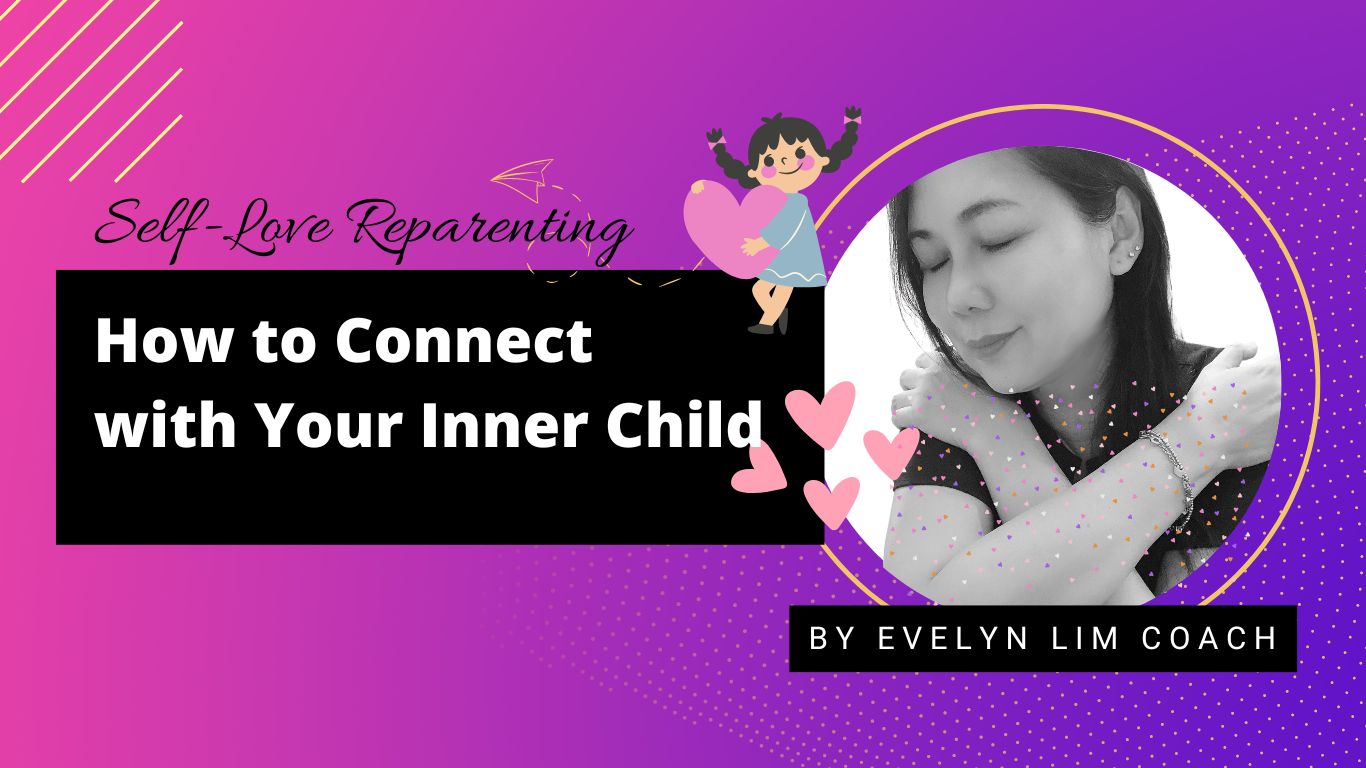
You may be wondering about how you can connect with your inner child. For a start, you may even have some doubts about the idea of having a wounded inner child. After all, it is not like the inner child is a being that you can actually see or hear externally. Let alone one that is wounded. How, then, do you connect with your inner child, if you are interested to heal aspects about your childhood?
Well….it is true that you can’t actually see your inner child with your naked eye. It may even feel like you are playing pretend when you close your eyes and attempt to see your inner child. Yet, just because you can’t see something with opened eyes does not mean that it does not exist. For example, just because you can’t see electricity does not mean that it is not working in the background when you turn the lamp on.
Mindfulness Teachings from Reconciliation: Healing the Inner Child

I’ve enjoyed reading Reconciliation: Healing the Inner Child by Zen Master Thich Nhat Hanh and thought I’d honour his recent passing by sharing what I’ve learnt about applying mindfulness for healing the inner child.
Connecting with The Energy of Mindfulness
“The energy of mindfulness is the salve that will recognize and heal the child within.” Thich Nhat Hanh
How Self-Love is a Mindfulness Practice of Tiny Habits
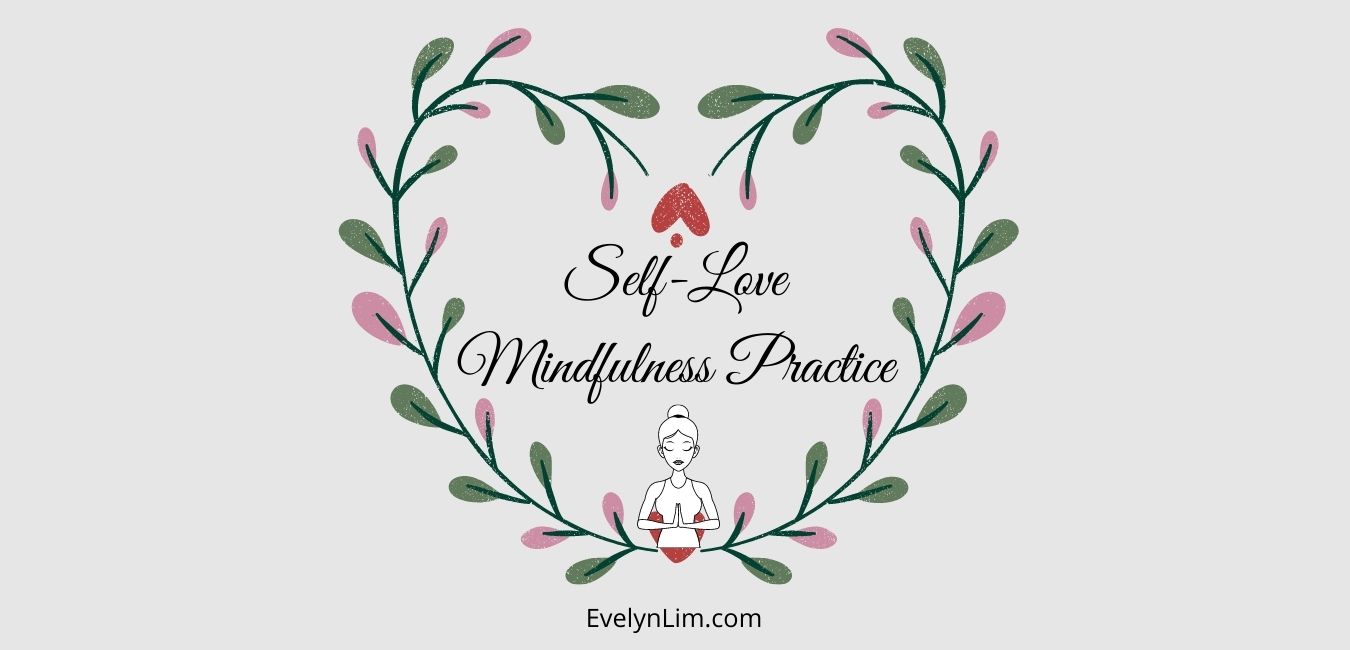
This means that loving ourselves is not a mere one-time or a short-term exercise; whether we are going for a therapy session, a singing bowl meditation to heal our heart chakra or buying ourselves a branded bag so that we can feel better.
Self-love is much more than any of these.
Some of us may have the expectation that self-love can happen magically overnight. The truth is that for those of us with trouble loving and accepting themselves unconditionally, it takes consistent work. It’s certainly been my experience.
Over the years, life would throw me a new challenge again and again and due to being triggered, I’d find myself reverting to the same pattern of feeling unlovable and unloved. At first, I felt disappointed and bitter that none of the healing I did appear to have worked. It would seem that doing inner work was pointless.
Yet, upon review, I realised that my early efforts were sporadic to begin with. Eventually, after seeing how I was caught in repeated patterns, I began to realise that self-love is not going to be an overnight or a one-time healing thing. It finally occurred to me that if I am interested to have enough of a breakthrough, I need to regard self-love as being more of a practice.
How EFT Tapping for Inner Child Healing Works
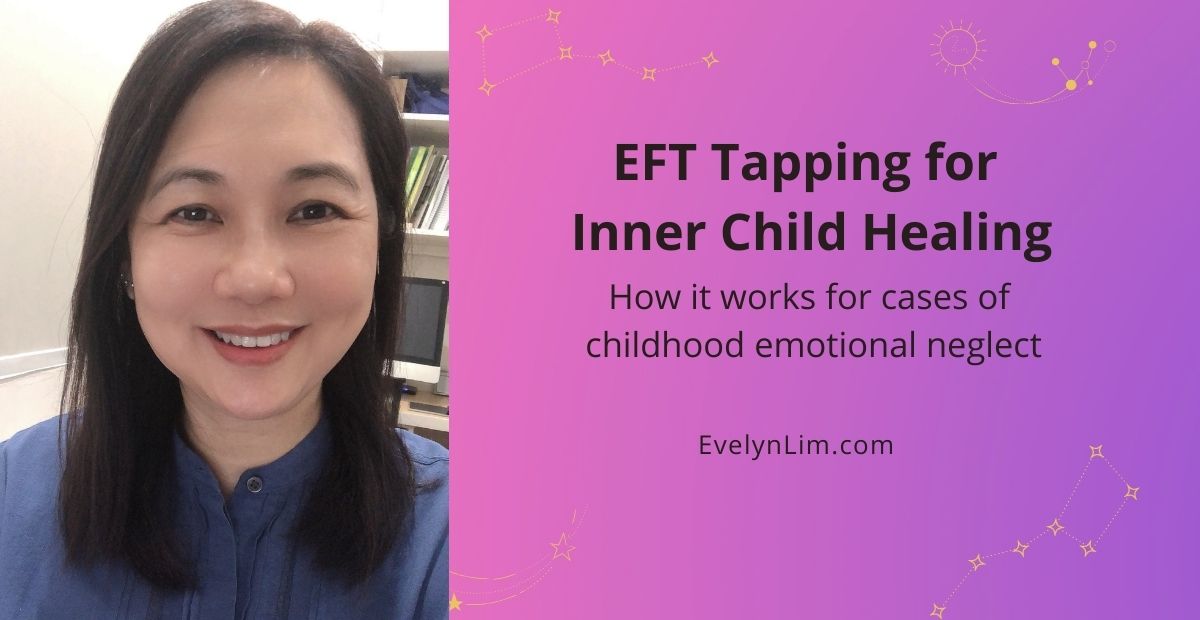
Applying EFT Tapping for Inner Child
EFT tapping for inner child healing involves using our fingertips to tap on specific meridian points on the face and body for addressing childhood wounds. As our physical reactions today could be tied to issues that stem from childhood, applying EFT is effective because unhealed emotions can get trapped and the body keeps the score. Even though the past is long gone, it is possible to heal in the now by applying tapping.
Download this resource page on EFT Tapping for Your Inner Child.
Women often approach me for help to deal with their stress. Their stress can be anything from dealing with a money or work-related challenge, relationship problems, not feeling “good enough”, low self-love to anxiety issues. They would have been holding on to anger, worry, insecurity and frustration for a long time before asking for help. (Understandably, most of us face resistance with getting assistance.)
Some would share about experiencing the same repetitive themes of abandonment and rejection in their lives. Thus, when we get together in a session, we usually begin by patiently peeling off the layers to determine the root cause of their issues. Invariably, we would find out that these issues stem from their past – primarily in childhood. As a result, we are led to working on healing their inner child.
How to Validate Your Inner Child with What to Say
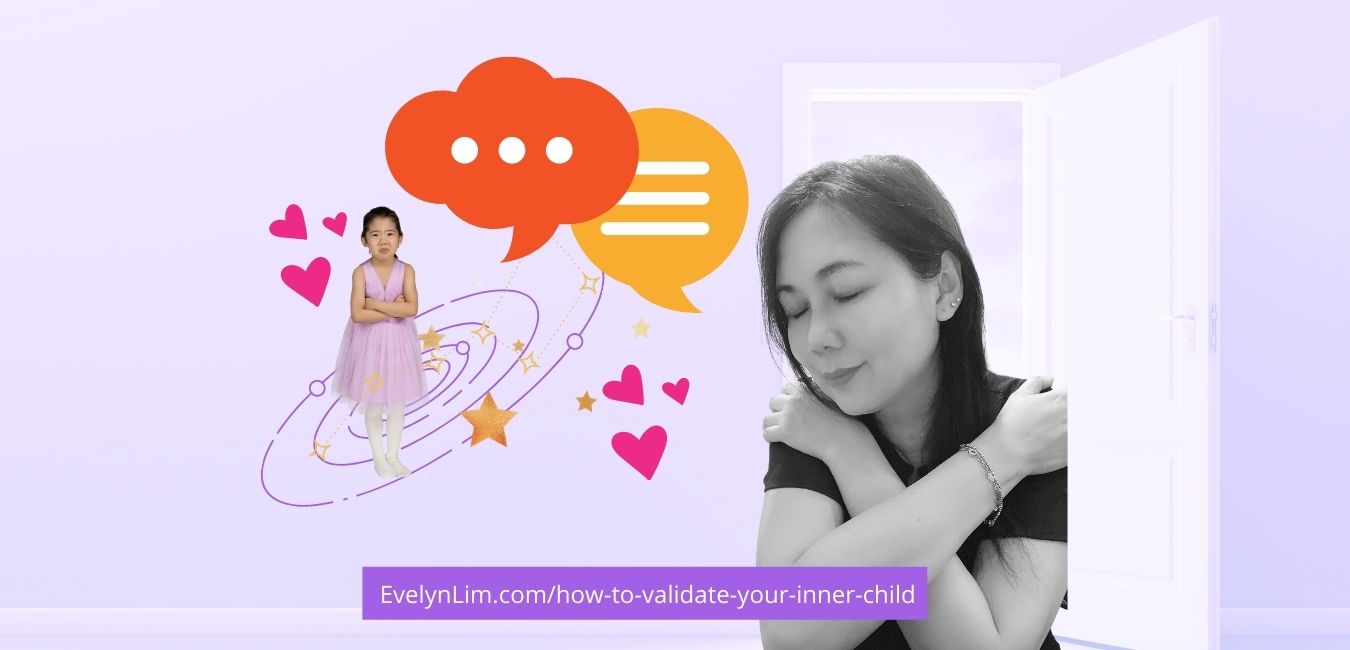
Validating our inner child is one of the best things we can do, especially if she (he) has suffered from emotional neglect for the longest time. When we validate her feelings, it aids in her healing and recovery. Her unresolved needs of not being listened to are now being met. Ultimately, it boosts our emotional well-being from the inside-out.
Let’s understand more about what validation is about. In general, when we validate someone, we are showing that we acknowledge his or her emotional experience. The opposite is true of invalidation when we ignore, reject or judge the other person.
Validation doesn’t mean that we have to agree with the reactions or choices of others. We are simply saying that we can understand why they would feel a certain way based on what happened. Also, we are demonstrating acceptance of who they are – regardless of how they feel or think.
